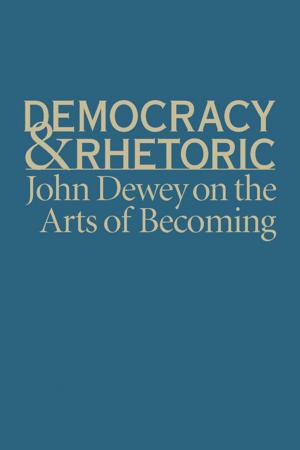Popular Memories
Commemoration, Participatory Culture, and Democratic Citizenship
Nonfiction, Reference & Language, Language Arts, Public Speaking, Rhetoric, Social & Cultural Studies, Political Science, Government, Civics, Social Science, Cultural Studies, Popular Culture| Author: | Ekaterina V. Haskins, Thomas W. Benson | ISBN: | 9781611174953 |
| Publisher: | University of South Carolina Press | Publication: | March 11, 2015 |
| Imprint: | University of South Carolina Press | Language: | English |
| Author: | Ekaterina V. Haskins, Thomas W. Benson |
| ISBN: | 9781611174953 |
| Publisher: | University of South Carolina Press |
| Publication: | March 11, 2015 |
| Imprint: | University of South Carolina Press |
| Language: | English |
In the last three decades ordinary Americans launched numerous grassroots commemorations and official historical institutions became more open to popular participation. In this first book-length study of participatory memory practices, Ekaterina V. Haskins critically examines this trend by asking how and with what consequences participatory forms of commemoration have reshaped the rhetoric of democratic citizenship. Approaching commemorations as both representations of civic identity and politically consequential sites of stranger interaction, Popular Memories investigates four distinct examples of participatory commemoration: the United States Postal Service's "Celebrate the Century" stamp and education program, the September 11 Digital Archive, the first post-Katrina Carnival in New Orleans, and a traveling memorial to the human cost of the Iraq War. Despite differences in sponsorship, genre, historical scope, and political purpose, all of these commemorations relied on voluntary participation of ordinary citizens in selecting, producing, or performing interpretations of distant or recent historical events. These collectively produced interpretations—or popular memories—in turn prompted interactions between people, inviting them to celebrate, to mourn, or to bear witness. The book's comparison of the four case studies suggests that popular memories make for stronger or weaker sites of civic engagement depending on whether or not they allow for public affirmation of the individual citizen's contribution and for experiencing alternative identities and perspectives. By systematically accounting for grassroots memory practices, consumerism, tourism, and rituals of popular identity, Haskins's study enriches our understanding of contemporary memory culture and citizenship.
In the last three decades ordinary Americans launched numerous grassroots commemorations and official historical institutions became more open to popular participation. In this first book-length study of participatory memory practices, Ekaterina V. Haskins critically examines this trend by asking how and with what consequences participatory forms of commemoration have reshaped the rhetoric of democratic citizenship. Approaching commemorations as both representations of civic identity and politically consequential sites of stranger interaction, Popular Memories investigates four distinct examples of participatory commemoration: the United States Postal Service's "Celebrate the Century" stamp and education program, the September 11 Digital Archive, the first post-Katrina Carnival in New Orleans, and a traveling memorial to the human cost of the Iraq War. Despite differences in sponsorship, genre, historical scope, and political purpose, all of these commemorations relied on voluntary participation of ordinary citizens in selecting, producing, or performing interpretations of distant or recent historical events. These collectively produced interpretations—or popular memories—in turn prompted interactions between people, inviting them to celebrate, to mourn, or to bear witness. The book's comparison of the four case studies suggests that popular memories make for stronger or weaker sites of civic engagement depending on whether or not they allow for public affirmation of the individual citizen's contribution and for experiencing alternative identities and perspectives. By systematically accounting for grassroots memory practices, consumerism, tourism, and rituals of popular identity, Haskins's study enriches our understanding of contemporary memory culture and citizenship.















